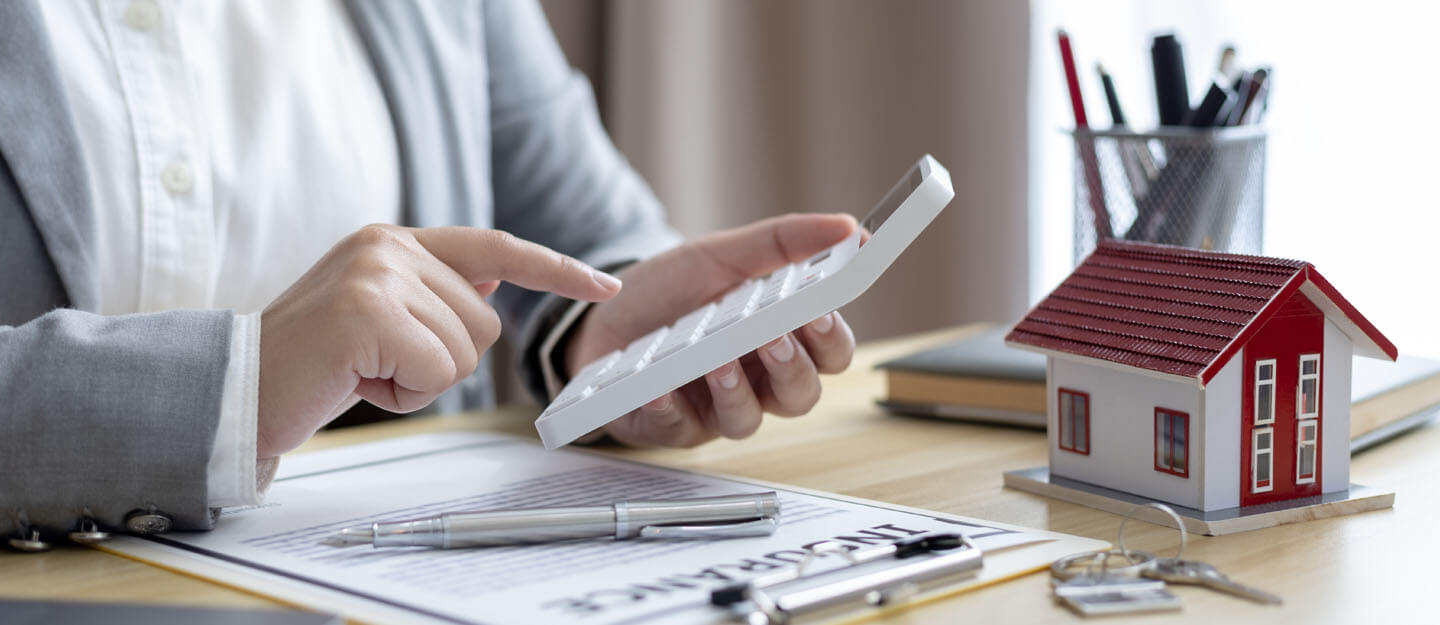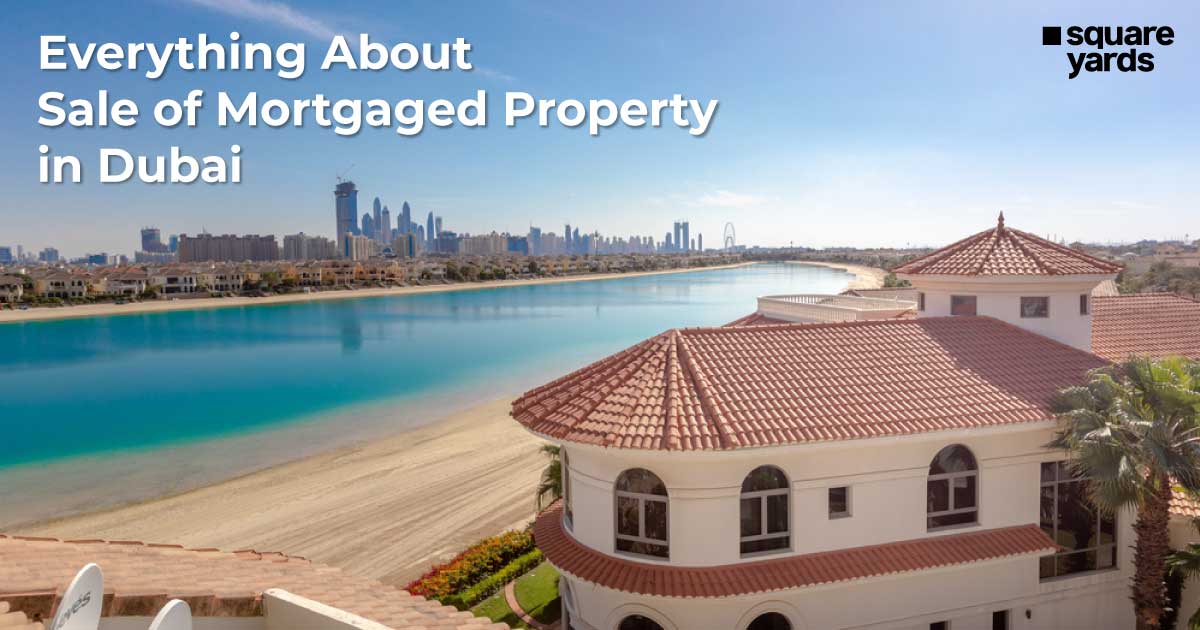Selling a mortgaged property in Dubai with a mortgage might seem complex, but fear not—our guide simplifies the process. We’ve covered everything from finding a buyer to navigating the Dubai Land Department (DLD) steps. Whether it’s a ready or off-plan property, learn about the necessary procedures, associated fees, and benefits.
Can You Sell a Property in Dubai with a Mortgage?
Yes, you can sell a property in Dubai with a mortgage. After finding a buyer, follow the steps listed by the Dubai Land Department and later in this article.
Procedure for Selling a Mortgaged Property in Dubai

To sell a mortgaged property in Dubai start with the following:
-
- Securing a buyer and signing a Memorandum of Understanding (MOU).
- Obtain a liability letter from your bank indicating the remaining mortgage amount, and acquire a No Objection Certificate (NOC) from the property’s developer.
- Visit a Dubai Land Department (DLD) office to block the property under the buyer’s name, ensuring protection and restricting further sale.
- Submit the buyer’s cheque to the bank, clearing the seller’s mortgage, and obtaining a clearance letter and original title deed.
- Complete the property transfer at the DLD, releasing the seller’s mortgage and issuing a new title deed in the buyer’s name.
- Note that the process may vary if the buyer obtains a mortgage, and fees include an early settlement fee, blocking charges, a mortgage release fee, and an NOC fee.
Sell Off-plan for Mortgaged Property in Dubai
When you want to sell a property in Dubai that is still under mortgage and has yet to be fully paid off, there’s a process to follow. First, find a buyer and sign Form F (Memorandum of Understanding) that outlines all the sale details. Then, you need to go through a few steps:
-
- Ask your bank for a liability letter, which tells you how much is left to pay on your mortgage.
- Get an NOC from the property’s developer. This confirms that there are no unpaid charges, and the developer has no issues with the sale.
- Property blocking is done to protect the buyer. You, the buyer, and others involved must visit the Dubai Land Department to block the property in the buyer’s name. This ensures the buyer can clear your mortgage, and you can’t sell the property to anyone else.
- Submit the buyer’s cheque to the bank. Once your mortgage is paid off, the bank gives you a clearance letter, and the original title deed goes to the buyer.
- Both parties go to the Dubai Land Department to transfer ownership. The seller’s mortgage is released, and a new title deed is issued in the buyer’s name.
Note: The process might take longer if the buyer gets a mortgage. In this case, property blocking may not be needed. For off-plan properties, check with the developer about any specific rules, and be aware of potential differences in fees compared to ready properties.
Fees of Selling a Mortgage Property in Dubai

When you sell a property in Dubai with a mortgage, there are different fees you need to consider.
-
- Firstly, there’s an early settlement fee, either 1% of the remaining mortgage or AED 10,000, whichever is less.
- Then, there are blocking charges, starting at AED 1000, to secure the property while the buyer sorts out the mortgage.
- You also pay a mortgage release fee, about AED 1,290 for regular mortgages and AED 1,560 for Islamic mortgages, to clear your existing mortgage.
- This fee may include extra charges from the registration trustee.
- The No Objection Certificate (NOC) fee, ranging from AED 500 to AED 5000, depends on the developer and is usually covered by the seller.
Conclusion
In short, selling a property with a mortgage in Dubai needs careful planning, but it’s doable if you follow the right steps. You have to find potential buyers and follow the rules set by the Dubai Land Department closely. Remember, there are different fees like early settlement, blocking charges, mortgage release, and NOC fees that you need to think about before making decisions. But even with these costs, selling a mortgaged property can be attractive because it’s flexible and can bring in profits. Getting help from professionals can make the whole process smoother and less complicated.
Recommended for you :
|
Guide To Property Sales in Dubai |
|
|
Know About Real Estate Litigation in Duba |
|
|
All About Dubai Off Plan |
|
|
Laws And Dubai rental market |
|
|
Guide to Dubai Rental Properties |
|
|
Dubai Property Investment |
|
|
Usufruct tenancy contract in Dubai |
|
|
About Property Valuation in Dubai |
|
|
Dubai Mortgages for Non-Resident |
Frequently Asked Questions (FAQs)
Selling a mortgaged property in Dubai offers flexibility, potential profit, and the ability to relocate without fully settling the mortgage. You can find a buyer, go through the necessary procedures, and transfer the property once the mortgage is cleared. This flexibility suits those seeking change or investment opportunities.
To restrict a mortgaged property in Dubai, get a liability letter and NOC, then block the property in the buyer' name at the Dubai Land Department. After settling the mortgage, obtain a clearance letter and transfer ownership to the buyer at the DLD office.
To restrict a mortgaged property in Dubai, you need essential documents, including a liability letter from the seller's bank, Form F (MOU), NOC from the developer, a copy of the title deed, cheques for various payments, original passports, visas, and Emirates IDs of both buyer and seller.
The fee to block a mortgaged property in Dubai is known as the Blocking Fee. This fee, typically paid by the seller, starts at AED 1000. It is part of the process to protect the buyer's rights and ensure that the property is not sold to anyone else while the buyer clears the seller's mortgage.
To calculate the mortgage payoff when selling a home, use an online mortgage calculator or multiply the remaining loan balance by the interest rate and divide the result by 365. The buyer typically pays off the remaining mortgage when purchasing the property, either in cash to the bank or by taking a mortgage to cover the remaining loan.
Yes, you can sell your house in Dubai before paying off the mortgage. The buyer usually pays off the remaining mortgage, either in cash to the bank or by taking a mortgage to cover the remaining loan.
When you sell your house, the buyer pays off the remaining mortgage. The buyer can pay in cash or mortgage to settle the remaining loan.
If you owe more on your mortgage than your property is worth, you are in a situation known as being underwater or having negative equity. This means the outstanding loan balance is higher than the current market value of your property. In such cases, selling the property may not cover the full mortgage amount, and you might need to explore options such as a short sale or working with your lender on a potential solution.
Yes, you can sell your mortgaged property to a foreign buyer in Dubai. The process involves obtaining a liability letter from the lender, securing a No Objection Certificate (NOC) from the developer, blocking the property under the buyer's name, receiving a clearance letter and the original title deed and then completing the property transfer.
For help selling your mortgaged property in Dubai, you can contact us for guidance on the process, documentation, and market insights. Consulting legal and financial professionals can ensure a smooth and compliant transaction. What are the benefits of selling a mortgaged property in Dubai?
What is the process for imposing restrictions on a mortgaged property in Dubai?
How can I impose restrictions on a mortgaged property in Dubai?
How much does it cost to block a mortgaged property in Dubai?
How do you determine the mortgage payoff when selling a home?
Is it possible to sell your house in Dubai before settling the mortgage?
What happens with my mortgage when I sell my house?
What if I owe more on my mortgage than my property is worth?
Can I sell my mortgaged property to a foreign buyer?
What should I do if I need help selling my mortgaged property in Dubai?




